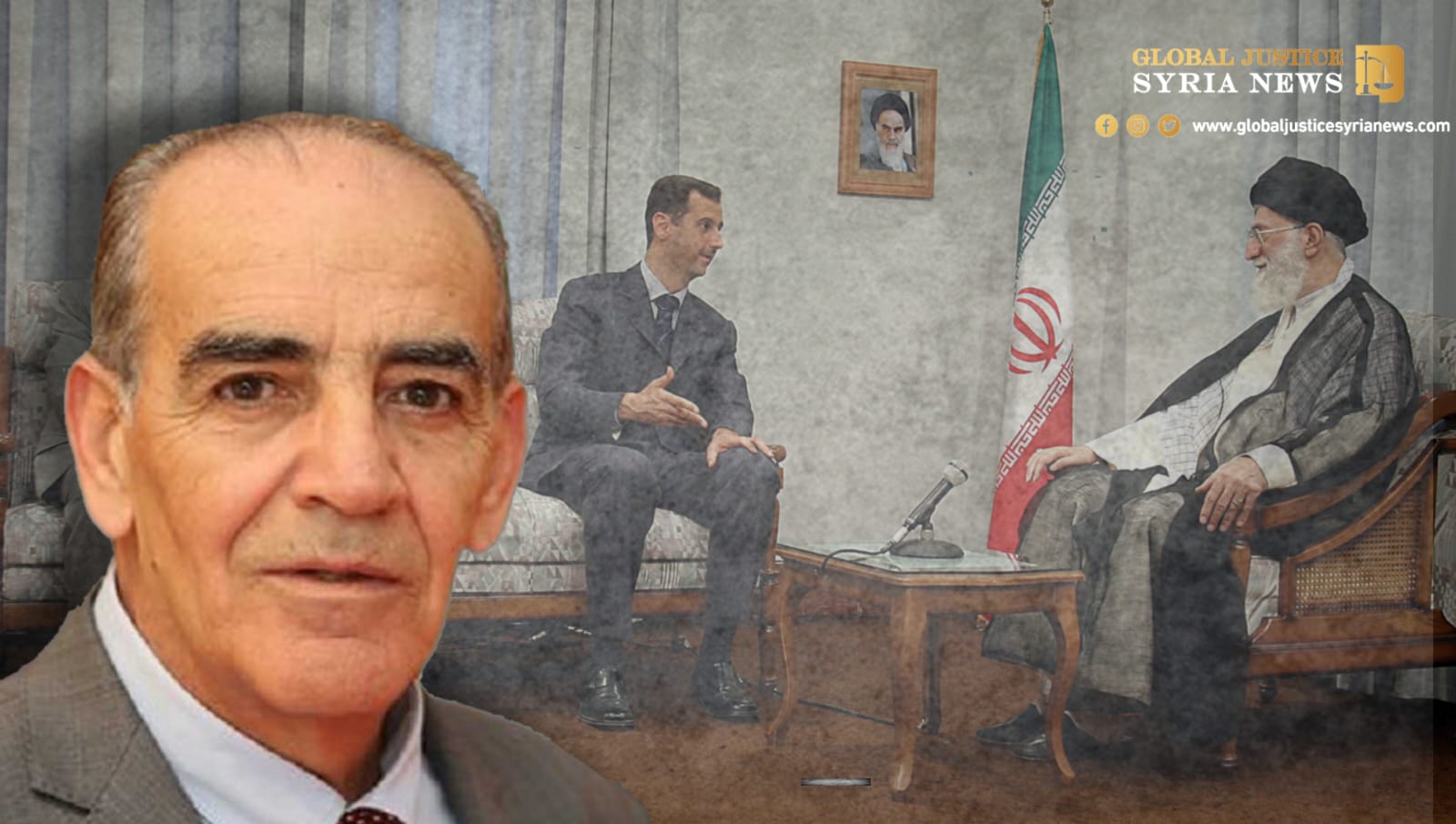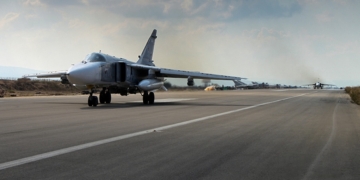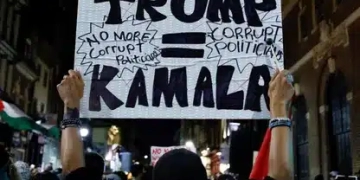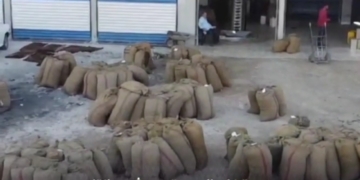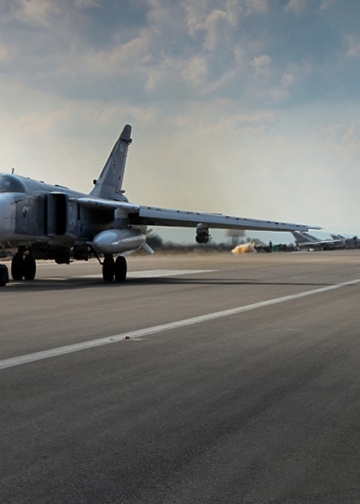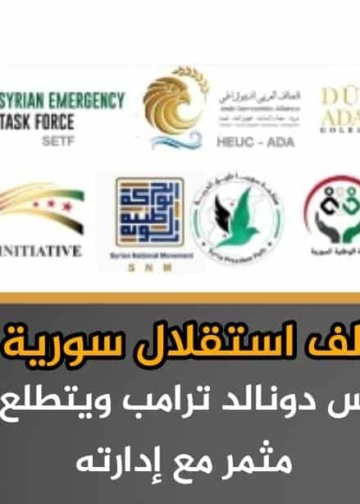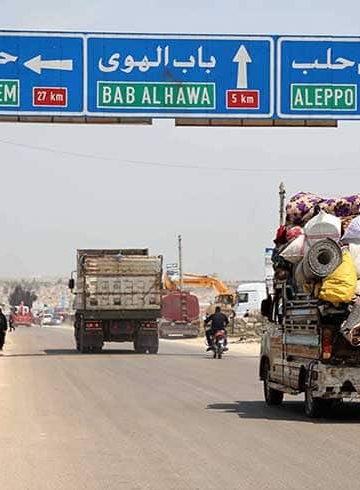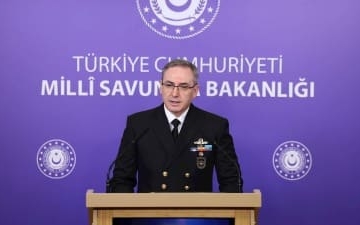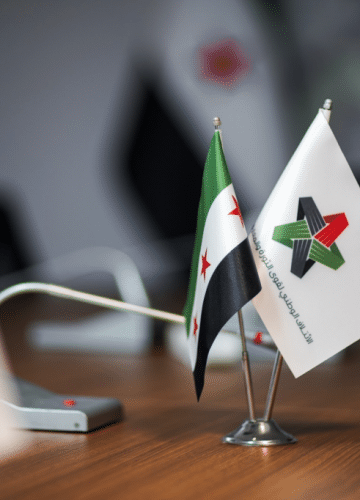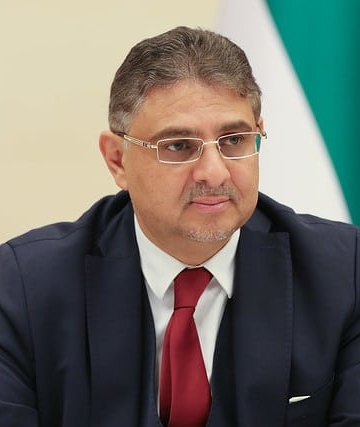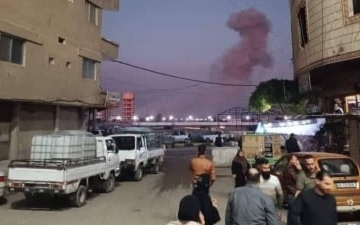Dr. Yahya Alaridi
Those who follow Tehran’s positions in the Middle East read that the Iranian expansionist project in the region is promoting itself, at least in the media, based on two main factors:
• The first is spreading rumours that Saudi-Israeli normalization steps have reached advanced stages; and that, According to them, requires regional stability needed by Saudi Arabia’s “Vision 2030,” which aspires to economic prosperity, which is difficult to achieve without sustainable peace.
• The second is that the horizon for rehabilitating the Damascus regime is blocked, which heralds the growing escalation of the popular movement to overthrow it. Indeed, signs of this escalation appeared in the uprise in southern Syria (Suwayda and Daraa), with the possibility of it expanding to include what Iran considers “the popular incubator of the Syrian regime” on the coast (Latakia and Tartous) and their neighbors in (Hama and Homs). The reality is that if the Syrian movement pressing to overthrow the regime expands to the coast and its neighbourhood, this will be a devastating blow to the Iranian project extending from Iraq to Lebanon, passing, of course, into Syria.
Few doubt that the Iranian expansionist project in the region was primarily responsible for the most horrific human rights violations in Syria, Iraq, Lebanon, and Yemen. Moreover, it was able to threaten the stability of the entire Middle East. Furthermore; through that, it enabled Iran to blackmail various powers regionally and internationally in its deals that ensure the continuation of the terrorist theocratic regime in Tehran contrary to the will of the Iranian people themselves.
The success of the Syrian uprise in pressuring the overthrow of the dictatorial Syrian regime was, and still is, enough to put the Iranian regime to the test in front of two bitter options:
• The first option is rational, and it avoids a complete collapse of its influence in Syria (the most important connecting knot in its expansionist project), which would lead to the exit of terrorist militias affiliated with Iran from Syria, and the negotiation of the dubious economic influence that Tehran built in Syria during the stages of its protection of the regime in Damascus in the face of a revolution for the sake of democratic change in the country. This Iranian protection strategy is conditioned by blackmailing Bashar al-Assad’s authority and stealing the country’s wealth.
• The second option is for Iran to go into a losing and open confrontation with “all” Syrians. Perhaps a confrontation of this kind will be compatible, at least in theory, with the interests of various powers at the regional and international level (most Arabs, Turkey, the United States of America, and most of Europe) in subjecting Iran to international laws away from practicing systematic terrorism and drug trafficking. This is against the backdrop of the Iranian regime’s arms reaching all parts of the globe, starting with the Middle East and passing through Africa and Latin America and not ending with Europe.
If Khamenei’s Iran confronts all Syrians, it would be an impossible mission that only a madman would undertake. It must be recalled here that the mullahs of Tehran have never hesitated to commit the most horrific violations against the innocent Iranian people themselves; but the Iranian regime has also been known for following precise and cautious calculations when it comes to the cold calculations of profit and loss.
Iran took the initiative to venture into blowing up the Middle Eastern scene in anticipation of the two truly dangerous options for its malicious project in the region. Since the leadership in Tehran has almost absolute control over the “Islamic Resistance Movement in Gaza” and also controls Hezbollah, the “Iranian Revolutionary Guard” ventured to open a battle exclusively from Gaza. It did this knowing in advance that it could not end in a Palestinian military victory, and it also knew that it would distort the rightful demands of the Palestinians to self-determination and obtain their rights in line with international resolutions and the Charter of Human Rights.
They launched a military operation from Gaza that began with the kidnapping of civilians in order to falsely inform the Western mind that the Shiat black turban is “saneer” than the Sunni white turban. It also opened the door wide to a war that Palestinian civilians could not bear. Not the least impactful of this war was the raid that targeted the National Baptist Hospital in Gaza City, which claimed the lives of a very large number of Palestinian civilian victims, and has not received international attention at the moment of writing these lines beyond political condemnations, from Arab and European countries such as France, while the war continues, and there are no serious initiatives about stopping this war and making peace.
Until now, Iran has maliciously committed itself to distancing itself from responsibility for igniting this war, and has contented itself with preliminary indications that it may play a role in releasing hostages of different nationalities (including Americans and other Western nationalities). This is a role that Tehran has practiced since Hezbollah kidnapped American hostages in Lebanon and then released them in deals with the West. Memory is full of criminal, extortionist behaviour practiced by the Iranian regime over the past decades, and if such deals do not succeed in serving Khamenei’s interests, and Washington does not respond to his conditions, then Tehran’s adventure will not be a losing one, but rather an experiment that will decide its decision by deepening its move eastward with Russia to the Chinese orbit.
t is certain that Iran has succeeded, according to its calculations, in turning the tables and avoiding a very embarrassing situation in Syria by launching a war whose price will be paid by civilians from various parties. Indeed, this war threatens to cause unrest in various parts of the world as Tehran continues to fuel its fire, benefiting Benjamin Netanyahu and gaining from the reaction of his kind of Israel. It is understood that the unprecedented escalation and prolongation of the battle must serve Netanyahu’s interest in evading internal entitlements that haunt him.
It remains to be said that the possibility of regional events in the Middle East returning to the path that was moving forward at the expense of the Iranian terrorist project still exists. However, it seems more difficult now after Tehran’s adventure with its card in Gaza. However, there is no doubt that returning to this path that leads to supporting the Syrian movement, and defeating the expansion of the terrorist militias affiliated with Iran in Syria, can put pressure on the Iranian regime and bring it into the fold of the international community on conditions that are compatible with the interests of the peoples of the region and ensure control of Tehran’s subversive behaviour. Aside from this, Netanyahu and Iran’s regional henchmen will continue to sabotage the region, while the “Iranian Revolutionary Guide” Ali Khamenei sits in the dark, away from direct confrontation, mocking everyone.



